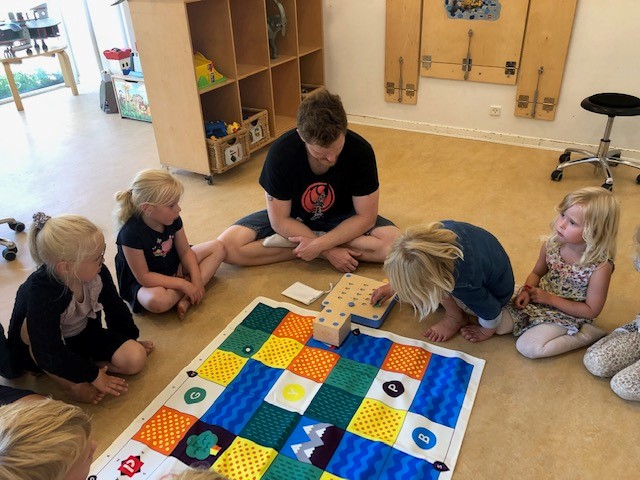
Topic(s) addressed
The project centred around computational thinking, digital competencies and inclusion.
Target group(s)
The project’s programme was designed for preschool pedagogical staff and executives as well as preschool children 3-6 years old. It involved also policy makers and local authorities.
Methodologies
The ideas for carrying out the programme involved action-based research, hands-on learning and application of methods observed in other countries trying to incorporate partners’ best practices on the local ground. The activities were based on cooperation with other schools with the example of “learnathons” involving primary school children.
Innovation environment
The project used an innovative and structured strategy for a new learning area. Different approaches developed by each of the five partner countries were shared with the other partners to be implemented outside of their immediate environments and entail techniques such as programming expertise from the UK preschool system, the practical “maker education” method from The Netherlands, the discovery and collaboration approach from Finland, the aesthetic and creative approach to using technology from Sweden, and the social pedagogical and outdoor learning approach from Denmark.
Teachers’ role
The preschool educational staff benefitted greatly from the project’s wide scope of international initiatives. To make it sustainable an international network was created through which the teachers will be able to share freely all the resources needed for their future progress. Some of the attains included a deeper knowledge of computational thinking, innovative pedagogic methods for developing creative and active learning.
Impact and output
The transnational nature of the project allowed each partner to apply methods developed in other countries’ contexts and to learn from best practices outside of their immediate environments. The project resulted in establishing clear evaluated and documented knowledge, approaches and pedagogies for the teaching and learning of computational thinking in Early childhood. Results included also a shared website where all outcomes and resources are accessible and disseminated to target groups at a local, regional, national and international levels. More information on co-make - CO-MAKE.
Video
- Reference
- 2019-1-DK01-KA201-06017
- Project locations
- Denmark
- Project category
- Early childhood education and care
- Project year
- 2023
Stakeholders
Coordinators
Læring, Kultur og Fritid i Middelfart Kommune
- Address
- Denmark
Participants
Utbildningskontoret, Norrköpings Kommun & Diamanten förskola
- Address
- Sweden
Lucas onderwijs & Cosmicus basisschool Den Haag
- Address
- Netherlands
Education Development Trust (operating as London CLC) & Stockwell Primary School
- Address
- United Kingdom
Tampereen Kaupunki & Irjalan päiväkotu
- Address
- Finland
Båring Børneunivers
- Address
- Denmark
